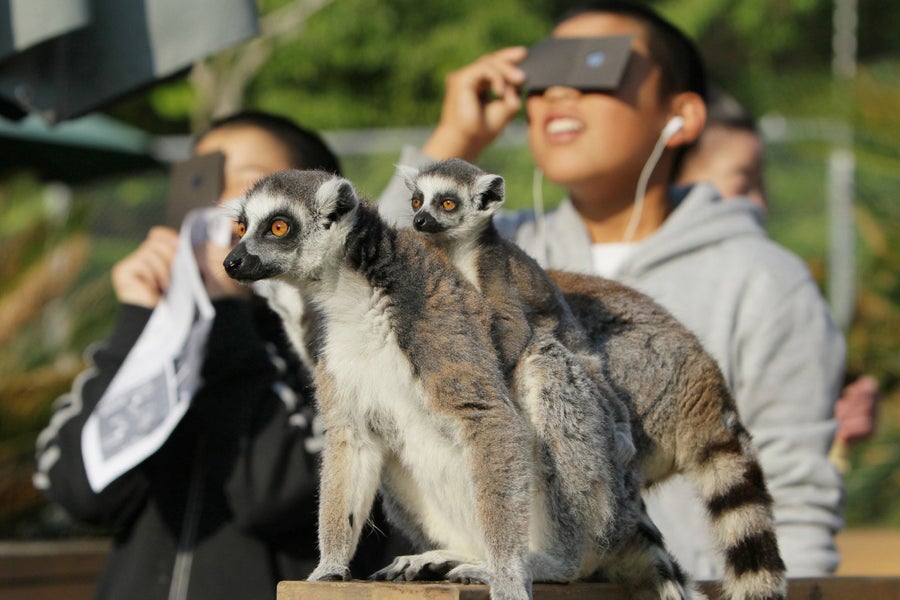
How Do Animals Respond to a Total Solar Eclipse?
They did their entire evening routine and nighttime routine and morning routine, all in the span of about four minutes,” says Hartstone-Rose, a biologist now at North Carolina State University.
For centuries, people have been intrigued by animals’ odd behaviors during total eclipses, when the moon’s shadow sends a strip of Earth into an untimely twilight. “There have been lots of anecdotal stories and people who have tried to collect and understand how animals respond to eclipses over many, many years,” says Rebecca Johnson, a biologist at the California Academy of Sciences. People often tell stories of birds and insects making noise or falling silent, for example.
But gathering data that aren’t merely anecdotal is no easy task, she says. “It’s a pretty hard system to study because eclipses don’t happen that often,” Johnson says. On average, any given place on Earth sees a total solar eclipse just once every 375 years—hardly something to build a career around, Johnson says.
